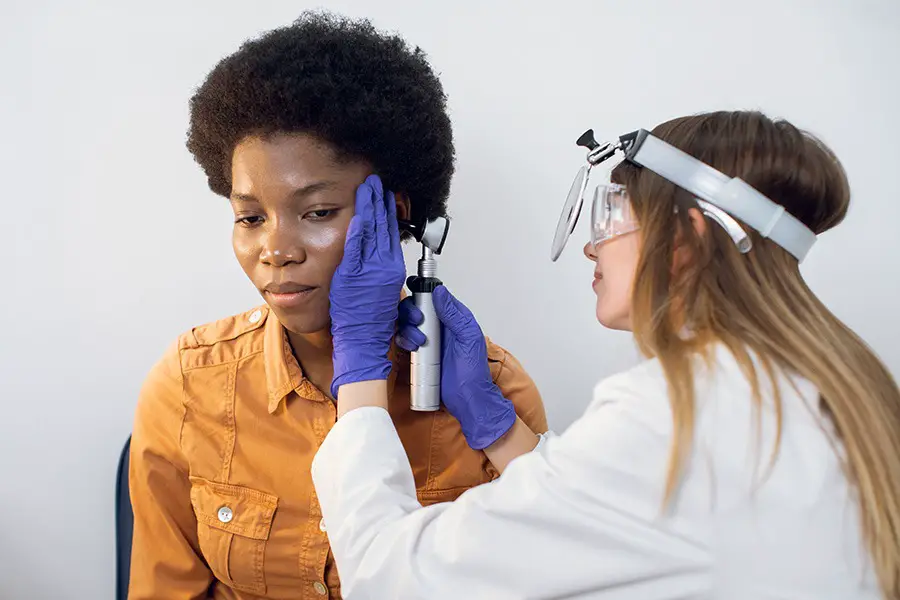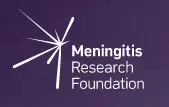Introduction
The linkage between meningitis and hearing loss carries substantial weight, impacting both the individual and their surrounding network. To effectively aid your loved ones, grasping the link between meningitis and hearing loss, learning to identify signs, and understanding the array of treatments and support is key. This all-inclusive guide walks you through various components of meningitis and hearing loss, plus offers practical suggestions on how to become a beacon of support.
The Repercussions of Meningitis on Hearing
Essential Information Meningitis, characterized by an inflammation of the protective membranes around the brain and spinal cord, can result from diverse bacterial, viral, or fungal infections. If unattended, meningitis could escalate to severe consequences, including irreversible hearing loss. This disastrous outcome ensues when the infection injures the inner ear, auditory nerve, or even auditory processing centers in the brain. The probability of hearing loss fluctuates based on the meningitis type, with bacterial meningitis carrying a higher threat compared to its viral counterpart.
Understanding the potential indicators of hearing loss resulting from meningitis, such as difficulties in hearing, tinnitus (ear ringing), or abrupt deafness, is critical. Swift detection and intervention are key in reducing the chance of permanent hearing loss, thereby requiring parents to be watchful of their child’s auditory health after a meningitis diagnosis. In certain cases, the hearing loss might be transitory and improve over time, but in others, it could be lasting and necessitate continuous management and support.
The Root Causes, Symptoms, and Treatment of Meningitis-Related Hearing Loss
Meningitis-related hearing loss primarily stems from the destruction of the inner ear or auditory nerve structures due to infection-induced inflammation. This damage could lead to a spectrum of hearing loss symptoms, from mild hearing difficulties to complete deafness. Additional symptoms of hearing loss induced by meningitis could include tinnitus, vertigo (a feeling of dizziness), and a sensation of fullness or pressure within the ears.
Treating hearing loss related to meningitis primarily entails addressing the underlying infection and reducing inflammation. This typically involves administering antibiotics or antiviral medications, contingent on the meningitis cause. In certain instances, corticosteroids might be used to mitigate inflammation and safeguard the sensitive inner ear structures. If hearing loss persists post-infection treatment, hearing aids or cochlear implants might be considered to enhance communication and life quality.
Adjusting to Life Post-Meningitis with Hearing Loss
Adapting to life post-meningitis with hearing loss can be a demanding journey for the individual and their loved ones. However, with the appropriate support, tools, and resources, it is feasible to assist your child or family member in flourishing in their new circumstances. Primarily, it is crucial to educate yourself and your loved ones about the nuances of hearing loss and its implications. Comprehending the complexities of this condition can empower you to communicate effectively and sympathize with the individual’s challenges.
Assistive technologies like cochlear implants and hearing aids can drastically enhance life quality for those grappling with meningitis-related hearing loss. Exploring available options and consulting with a proficient audiologist to identify the most suitable device for your child’s unique needs is crucial. Furthermore, consider participating in speech and language therapy programs to help them hone their communication skills and elevate their confidence in social settings.
Cross-disciplinary Collaboration in Researching Meningitis and Hearing Loss
Progress in understanding and treating meningitis and hearing loss necessitates cooperation across various disciplines, including audiology, neurology, infectious disease, and immunology. This cross-disciplinary approach allows researchers and clinicians to merge their expertise and resources, leading to breakthroughs in the prevention, diagnosis, and management of these interrelated health concerns. Collaborative efforts enable these experts to devise innovative strategies to lessen the risk of hearing loss post-meningitis and enhance the life quality for those impacted.
Joint research initiatives have already yielded significant advancements in meningitis vaccines, early diagnosis techniques, and hearing loss treatment options. As research continually evolves, it is critical for parents and healthcare professionals to remain updated on the latest developments and recommendations, ensuring optimal care for children at risk of meningitis-induced hearing loss.
Professional Re-Chargeable Hearing Aid
Experience Exceptional Sound Quality with Vivtone RIC02, a professional RIC hearing aid featuring a receiver in the canal design. Enjoy superior sound fidelity, reduced distortion, and minimal feedback. With a remarkable 51dB peak sound gain, it surpasses many other devices, catering to a wide range of hearing loss levels.
State-of-the-Art Technology awaits you with Vivtone RIC02. Designed with US-made components from renowned brands like Intricon and Knowles, this advanced device offers exceptional quality at a fraction of the cost. The built-in 30mAh steel-sealed lithium polymer battery charges rapidly in just 1.5 hours and provides an impressive battery life of over 20 hours.
Reliability and Water Resistance come hand in hand with the Vivtone RIC02. Secure your device with the included lanyard and clip, preventing accidental loss. With an IP65 rating, these hearing aids are resistant to water, sweat, and raindrops, assuring longevity and durability. Give the perfect gift to your seniors and loved ones, as this device combines functionality with an appealing appearance and packaging.
Futuristic Approaches to Cochlear Implants for Meningitis-Related Hearing Loss
Cochlear implants have transformed the treatment landscape for severe to profound hearing loss for many, including those suffering from meningitis-related hearing loss. These surgical devices circumvent damaged inner ear structures to directly stimulate the auditory nerve, enabling the brain to process sound signals. With the continual evolution of cochlear implant technology, there is optimism for even better outcomes for those afflicted by meningitis-induced hearing loss.
Prospective developments in cochlear implant technology may feature enhanced speech recognition in noisy settings, improved sound quality, and more natural listening experiences. Furthermore, ongoing research aims to develop devices that are MRI scan compatible, which is currently a limitation of many cochlear implants. By staying informed about the latest advancements in cochlear implant technology, parents and healthcare professionals can ensure the best possible outcomes for those affected by meningitis-related hearing loss.
Promising Developments in Regenerative Medicine for Meningitis and Hearing Loss
Regenerative medicine offers considerable promise for the future treatment of hearing loss induced by meningitis. This nascent field concentrates on the development of therapies that stimulate the body’s inherent ability to repair or replace damaged cells, tissues, or organs. In the context of meningitis-related hearing loss, regenerative medicine could potentially be used to repair or regenerate damaged cells within the inner ear or auditory nerve.
Though research in this area is still preliminary, some promising advancements have been made in animal models, including the successful regeneration of hair cells within the inner ear. If these findings can be replicated in humans, it could revolutionize the treatment of meningitis-related hearing loss by offering a potential cure for this devastating complication. Parents and healthcare professionals should monitor the progress of regenerative medicine research and stay informed about potential future treatment options.
Conclusion
The intertwined health issues of meningitis and hearing loss can significantly affect the individuals experiencing them and their families. By grasping the relationship between these conditions, parents can proactively protect their child’s hearing and support them throughout the recovery journey. This all-encompassing guide has delved into various facets of meningitis-related hearing loss, offering valuable information on prevention, diagnosis, treatment strategies, and support.
The importance of cross-disciplinary collaboration, advancements in cochlear implant technology, and the potential of regenerative medicine provide hope for those affected by meningitis-related hearing loss. As a caring parent, staying abreast of these advancements and ensuring access to the latest treatments can enhance your child’s quality of life. By joining forces, parents, healthcare professionals, and researchers can impact the lives of those affected by meningitis-related hearing loss.

Decoding Silence: An Analytical View on the Advances in Conductive Hearing Loss Research and Treatment
This analytical article sheds light on conductive hearing loss, offering an in-depth exploration of its genetic factors, treatment advances, and promising experimental therapies.

Embracing the Melody of Life: Navigating the Journey with Conductive Hearing Loss
A blog post delving into the experiences and challenges of living with conductive hearing loss, discussing its impact on everyday life, social interactions, mental health, and the potential benefits of hearing aids and cochlear implants.





